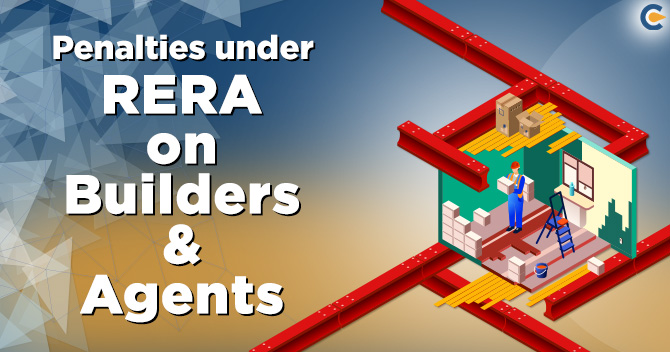The Real Estate (Regulation & Development) Act, 2016, came into effect from May 1, 2017. RERA has effective measures for all residential and commercial projects in all states of India. After RERA Act analysis the Parliament passed an Act that seeks to protect the interests of homebuyers and simultaneously boost investments in the real estate industry. The Act establishes a Real Estate Regulatory Authority (RERA) in each state to regulate the real estate sector and acts as an adjudicating body for speedy dispute redressal.
With the changing legal scenario post the introduction and implementation of RERA Registration, home buyers and developers alike can look forward to a healthy and conducive legal environment for settlement of disputes and redressal grievances, including compensation for any omission, negligence, delays, etc. With a number of good judgments/orders coming from various state RERA authorities, one can surely rest assured that RERA Act analysis is indeed the right step in the right direction. However, there are still certain grey areas that need to be addressed by RERA in the long run.
Key Provisions under RERA in favour of Home Buyers


RERA Act Analysis and Rights of homebuyers
- Enactment of RERA Authority: A functional authority includes protecting the interests of the stakeholders and yielding complaint redressal system for homebuyers wherein their complaints will be heard.
- Compulsory Registration: Builders needed to comply with their projects with complete details under RERA, by virtue of which fraud builders could be filtered out.
- Continual disclosures by promoters: Promoters cannot intentionally delay the project as they have to submit periodic progress of the project.
- A standard model of sale agreement: As per the Act, there is a standard format for the sale agreement. The builder has to follow the format and not add any penal clauses that may ask for a homebuyer penalty.
- Reduction on the risk of Builder’s Insolvency: Builders have to create a Reserve Account to avoid diversion of funds to another project. One of the primary reasons for the delay of projects was that funds collected from one project diverted to other new projects. Under RERA, builders are now required to have 70% of all project receivables into a separate reserve bank account. The proceeds of such an account can only be used towards the land and construction expenses of the project for which they have been collected.
- Penalty: Any violation of the RERA Act will invite penalty for the promoter (10% of the project cost). Therefore, builders will take into account before any violation.
Read our article:Guide on RERA Registration for Real Estate Agents
Relevant provisions of the RERA Act Analysis
Section 11 of the Act
After the Regulatory Authority performs the registration for the project, the builders or developers have to publish all the details of their projects on the Regulatory Authority website.
Section 12 of the Act
If a buyer invests into a particular project due to information contained in a prospectus/ advertisement or after seeing a model flat/apartment and if such information turns out to be incorrect or false, then any loss incurred by the buyer shall have to be compensated by the promoter.
Section 19(1) of the Act
The Right of Information
The allottee must be entitled to obtain the information relating to sanctioned plans, layout plans along with the specifications, approved by the competent authority, and such other information as provided in this Act or the rules and regulations made thereunder or the agreement for sale signed with the promoter.
Section 19(2) of the Act
The Right to Know Stage Wise Progress of Project
The allottee must be entitled to know the stagewise schedule of completion of the project, including the provisions for water, sanitation, and electricity and other amenities and services as agreed to between the promoter and the allottee, in accordance with the terms and conditions of the agreement for sale. The registration must be valid for the period indicated in a project application as required for the completion of a project. Once the period is over, the Regulatory Authority has a right to revoke the registration granted for the project.
Right of the buyer to withdraw from the project
If a builder or developer has not handed over the property by the date mentioned in an agreement for sale or if the Regulatory Authority’s registration has been suspended or revoked, the buyer has the right to withdraw from the project.
Right of the buyer to file a Complaint before the Regulatory Authority
If a builder or developer is not voluntarily compensating the buyer, he/she can file a complaint. Each State Regulatory Authority is supposed to appoint an officer who performs the functions of a judge. The officer will conduct an inquiry and pass an order once the officer has decided whether the buyer is supposed to get the interest or money spent.
Right of the buyer to Appeal
In case the buyers dissatisfied with the order of Regulatory Authority, they can file an appeal with the Appellate Tribunal, who will redress your case within 60 days. In case of failure, it must record the reasons regarding such failure.
Rights of a buyer in Case of Defect in Title
If it is found that there is a defect in the title of the property at any time after the possession of a property, then the consumer can claim compensation from the builder. It is also not barred by the Limitation Act, which means there is no time limit within which one can discover the defect.
Right of the Buyer in Case of Defect after Possession
If any structural defect or any defect in workmanship, quality, provision, or service is discovered within five years after the possession of the apartment, the builder will rectify such defect at no extra cost within 30 days.
Issues and Recommendations after RERA Act Analysis


Delay in the Registration of ‘Ongoing’ Projects with the RERA
Section 4 of the RERA Act lays down that a project must have received the commencement certificate to qualify for registration with the RERA and begin receiving funds from prospective buyers. However, many instances where a promoter has received funds from a buyer without the commencement certificate.
Recommendations
- The definition of ‘ongoing projects’ contained in the rules drafted by the different states must be amended to exclude projects where the structures are fit for occupation. Still, a completion certificate has not been obtained.
- In the interim, given that the RERA Act does not allow for any deviations from the basic requirements for obtaining a completion certificate, all exemption rules notified by the states that depart from this standard are illegal and cannot be enforced.
Inadequate Time for Completion of the Conveyance of a Project
Section 17 of the RERA Act states that a promoter must complete the conveyance of aproject favoring the allottees within 3 months of receiving the occupancy certificate. This period is deemed to be short for promoters. They claim that while it is presumed that promoters seek to avoid conveyance in order to retain the stake in the project. The conveyance-avoiding behavior of the allottees has not been adequately accounted for by the Act. The allottee seeks to avoid the conveyance of a project so that the promoter continues to be responsible for carrying out maintenance and repair works foras long as possible. In reality, it becomes difficult for promoters to realistically meet a 3 month deadline set under the Act.
Recommendation
- The promoter must be allowed between 6 months to 1 year from receipt of the completion certificate to complete conveyance to the association of allottees.
Issues regarding Structural defects
The Act erroneously placed ‘structural defects’ and ‘bad workmanship’ in the same basket when it comes to allowing the buyer to trigger the compensation clause within 5 years. Section 14(3) of the RERA Act[1] lays down that a promoter must rectify any structural defect or any other defect in workmanship, quality, or provision of services within 30 days of the buyer bringing it to their notice.
The Act provides the buyer with a 5 year window within which such defects can be brought up. ‘Structural defects’ refer to defects in the entire structure, i.e., the building. On the other hand, ‘workmanship’ refers to defects within the unit, which the allotted must identify within a year of taking possession of the unit. The Act gives the allotted so much time to bring them to the promoter’s notice, places a disproportionately heavy burden on the promoter.
Recommendations
- The Act must include a provision for mandatory third-party inspection of a project at the time of handover of the possession.
- While the time period allowed for making claims against structural defects has to be five years. This has to be applicable from the date of completion of a project and not the handover of possession. On the other hand, allowing claims against bad workmanship should be limited to one year from the date of handing over possession to the allottee.
Defects if a promoter fails to complete a project
Section 18 of the RERA Act allows the allottee to claim applicable interest if a promoter is unable to complete the project according to the terms of the agreement for sale. This also indicates a lack of emphasis on the completion of the project, which could be perceived as encouragement by an allottee to claiman applicable interest in the event of a delay.
This provision could create problems in the future, especially during lean periods for the real estate market, when the market value of the project gets depreciates. In such an event, the allottees would be likely availed the option of getting their money back with interest, as opposed to pushing for the completion of the project.
Recommendations
- The language of the RERA Act must be suitably amended to encourage the completion of the project.
- The time period allowed to an allottee to claim interest for the period of delay must be limited to a period of 1 year from the stated date of completion. The option given to an allottee to walk out of the project after receiving a refund with interest must be allowed only in certain restricted circumstances.
Suggestions about Real Estate Regulatory Authorities
- Conciliation and reconciliation forums are also formed for faster resolution of the issues between homebuyers and developers.
- RERA should give authentic data or information about the number of projects with components like carpet area and facilities under-construction projects in all the State areas.
- Cancellation and refund of money to home buyers should be rationalized as the money once invested in a project, if refunded, will finally impact the progress of the project and its delivery.
- RERA should ensure proper fund flow in a project by discouraging late payments and refunds to the home buyers.
- The utilization of demand and supply of housing through the RERA web portal for developers to plan business models accordingly. Summary of the entire project in a simple format for the public perspective of the project.
- Options to view the number of complaints against a project can guide the disbursement of funds by the financial institutions.
- The details of mortgage and the concerned institution names expired certificate notification, and the subsequent process should be added in the RERA web portal.
Conclusion
One of the biggest problems that remain even after the implementation of RERA is obtaining various approvals from various Government agencies by the builder. In the absence of a single-window for disbursing all regulatory approvals, the launching of the projects tends to get delayed in the developers’ hands as known after RERA Act analysis. The same has been a longstanding demand of the real estate sector as it will help in the timely completion of the projects.
Read our article:All You Need To Know About RERA Registration Process











